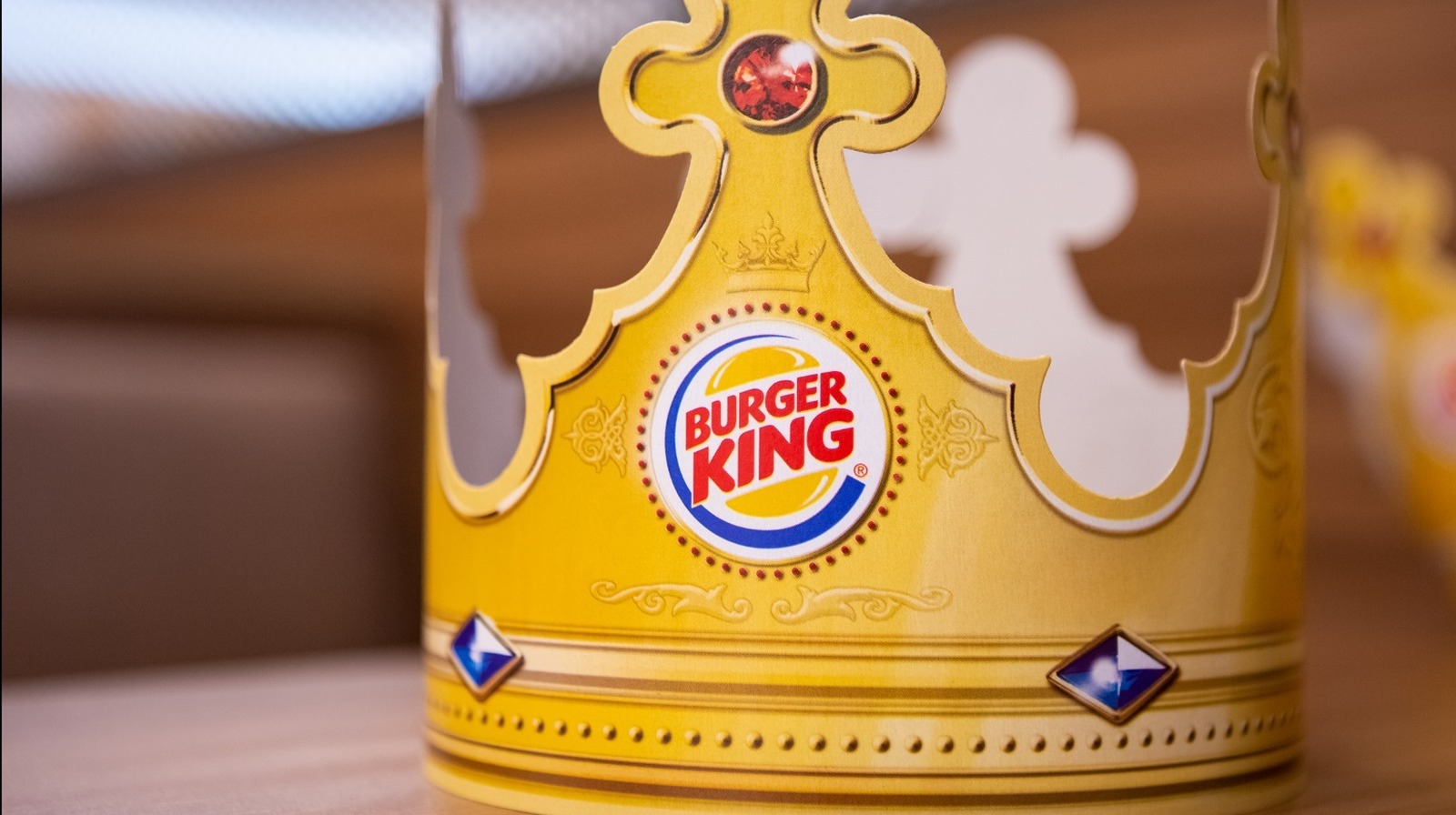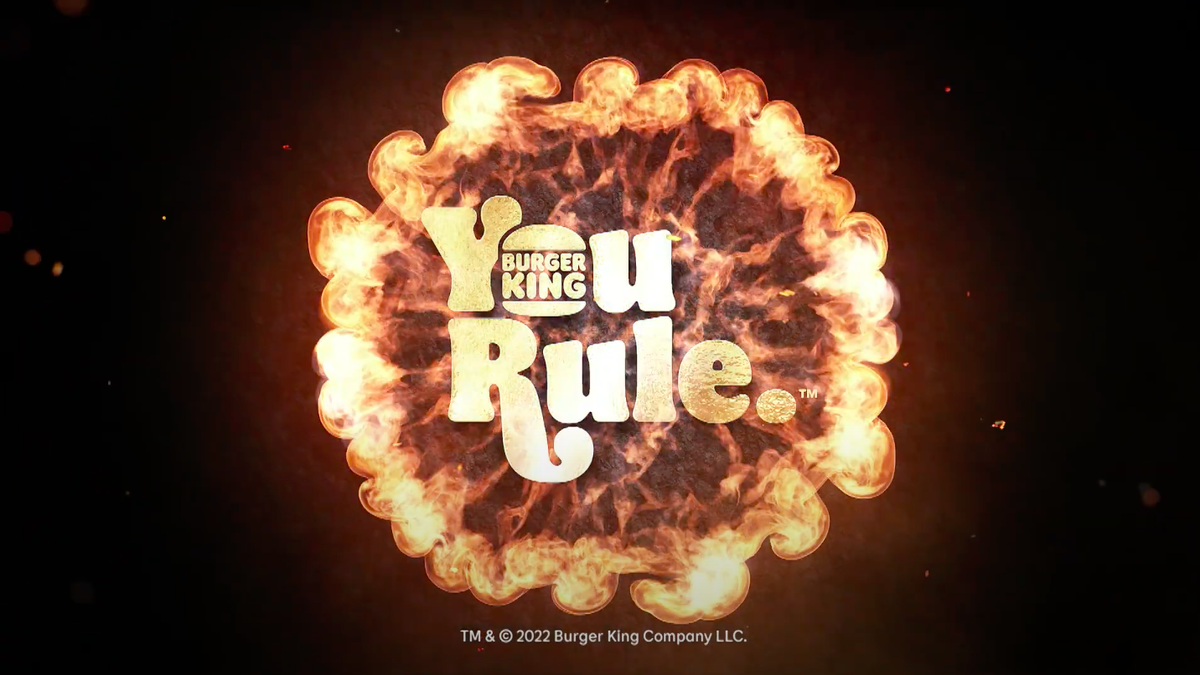Ever wondered why your favorite Burger King just shut down? It's not just about bad food or poor service. There's a whole lot more going on behind the scenes that most people don't know about. From financial struggles to changing consumer preferences, the reasons for Burger King's closure are as complex as they are surprising. So buckle up, because we're about to dive deep into the world of fast food and uncover the truth.
Let's be real, Burger King has been a staple in the fast-food industry for decades. From their iconic Whopper to their flame-grilled burgers, they've built an empire that millions love. But even giants can stumble, and lately, we've seen more and more Burger King locations closing down. Why is that? Is it just bad luck, or is there a bigger story here?
This article isn't just about pointing fingers. We're going to explore the reasons for Burger King's closure, from the inside out. Whether you're a loyal customer or just curious about what's happening in the fast-food world, this is the article for you. Let's get started!
Read also:Kaitlan Collins Bikini A Deep Dive Into The Hype Style And Everything Inbetween
Table of Contents
- Financial Woes: The Money Problem
- Changing Trends: What Consumers Want Now
- Management Issues: Who's in Charge?
- Franchise Impact: The Local Connection
- Competition: The Battle for Market Share
- Supply Chain: The Hidden Struggles
- Consumer Behavior: Shifting Preferences
- Health Concerns: Is Fast Food Falling Out of Favor?
- Technology: The Role of Digital Transformation
- Global Perspective: What's Happening Worldwide?
Financial Woes: The Money Problem
Let's start with the elephant in the room: money. One of the biggest reasons for Burger King's closure is financial instability. Running a fast-food chain isn't cheap, and when the numbers don't add up, things can get messy real fast. Between rent, wages, and ingredient costs, it's easy for a location to go under if it's not pulling its weight.
According to a report by the National Restaurant Association, nearly 40% of restaurants close within the first year of operation. While Burger King isn't exactly a startup, the same financial pressures apply. Locations that don't meet sales targets or struggle with high operational costs often end up shutting down. It's a harsh reality, but one that can't be ignored.
Key Financial Challenges
- High rent in prime locations
- Rising labor costs due to minimum wage increases
- Fluctuating prices for key ingredients like beef and lettuce
- Increased competition driving down profit margins
It's not just about making burgers; it's about making them profitably. And when the numbers don't work, the consequences can be brutal.
Changing Trends: What Consumers Want Now
Consumer preferences are evolving faster than ever, and fast-food chains like Burger King are struggling to keep up. In the past, a juicy burger and a side of fries were enough to keep customers coming back. But today, people are looking for more than just taste—they want health, convenience, and sustainability.
Plant-based burgers, gluten-free options, and locally sourced ingredients are all part of the new food landscape. Burger King has tried to adapt with offerings like the Impossible Whopper, but it's not always enough to win over the modern consumer. The competition is fierce, and if Burger King doesn't evolve, they risk being left behind.
Consumer Expectations Today
- Healthier menu options
- Sustainability and eco-friendly practices
- Fast and convenient ordering experiences
- Personalized menu choices
It's not just about what's on the menu; it's about the entire customer experience. And if Burger King can't deliver, they might find themselves on the wrong side of history.
Read also:Estes Park Colorado Latest Your Ultimate Guide To Discovering The Charm Of This Mountain Paradise
Management Issues: Who's in Charge?
Let's talk about management because, let's be honest, a well-run business doesn't just happen by accident. Burger King's corporate leadership has faced its fair share of challenges over the years, and sometimes those challenges trickle down to individual locations.
Poor management decisions, lack of oversight, and inconsistent quality control can all contribute to a store's failure. When employees aren't properly trained or motivated, it shows in the service—and customers notice. Add to that the pressure of meeting corporate targets, and you've got a recipe for disaster.
Common Management Pitfalls
- Inadequate training for staff
- Failure to adapt to local market conditions
- Poor communication between corporate and franchisees
- Overemphasis on short-term profits at the expense of long-term success
Good management isn't just about making money; it's about creating a culture where employees and customers can thrive. And when that culture breaks down, the results can be catastrophic.
Franchise Impact: The Local Connection
Here's something you might not know: most Burger King locations are owned by franchisees, not the corporation itself. That means the success or failure of a particular store often depends on the individual owner. Some franchisees are great at running their businesses, while others struggle to keep their heads above water.
Factors like location, local competition, and personal management style all play a role in a franchise's success. And when things go wrong, it's the franchisee who bears the brunt of the consequences. That's why understanding the franchise model is crucial to understanding why Burger King locations close.
Challenges Facing Franchisees
- Limited control over menu and pricing
- High franchise fees and royalties
- Difficulty competing with larger chains
- Constant pressure to meet corporate standards
Being a Burger King franchisee isn't easy, but for those who succeed, the rewards can be substantial. For those who don't, the closure of their location can be a devastating blow.
Competition: The Battle for Market Share
Let's face it: the fast-food industry is more competitive than ever. Burger King isn't the only game in town, and with chains like McDonald's, Wendy's, and Shake Shack vying for market share, the pressure is on. Add to that the rise of food delivery apps and meal-kit services, and you've got a whole new playing field.
To stay competitive, Burger King has to innovate and adapt. That means offering new menu items, improving customer service, and leveraging technology to enhance the dining experience. But it's not always easy to keep up, especially when the competition is fierce.
Competitive Pressures Facing Burger King
- Rising popularity of healthier fast-casual dining options
- Growth of food delivery services like UberEats and DoorDash
- Increased competition from local and regional chains
- Changing consumer loyalty patterns
It's a dog-eat-dog world out there, and Burger King has to fight tooth and nail to maintain its place in the market.
Supply Chain: The Hidden Struggles
Behind every great burger is a complex supply chain that keeps the ingredients flowing. But when that supply chain breaks down, it can have serious consequences for a restaurant's bottom line. Issues like ingredient shortages, transportation delays, and rising costs can all contribute to a store's closure.
Burger King relies on a network of suppliers to provide everything from beef patties to buns, and when one link in that chain fails, it can create a domino effect. Add to that the challenges of global trade and tariffs, and you've got a recipe for disaster.
Supply Chain Challenges
- Fluctuating prices for key ingredients
- Logistical issues in transporting goods
- Impact of global trade policies on sourcing
- Quality control and food safety concerns
It's not just about getting the burgers on the grill; it's about ensuring that every aspect of the supply chain is functioning smoothly. And when it's not, the results can be devastating.
Consumer Behavior: Shifting Preferences
Consumer behavior is changing faster than ever, and Burger King is feeling the heat. People are more health-conscious than ever, and they're looking for options that align with their values. Whether it's plant-based burgers or locally sourced ingredients, customers want more than just a quick meal—they want a meal that reflects who they are.
Burger King has responded with offerings like the Impossible Whopper, but it's not always enough to win over the modern consumer. The competition is fierce, and if Burger King can't keep up, they risk losing customers to other chains that offer what they're looking for.
Shifting Consumer Priorities
- Increased demand for healthy and sustainable options
- Growing interest in plant-based and vegan diets
- Preference for locally sourced and organic ingredients
- Desire for personalized and customizable menu choices
It's not just about what's on the menu; it's about the entire customer experience. And if Burger King can't deliver, they might find themselves on the wrong side of history.
Health Concerns: Is Fast Food Falling Out of Favor?
Let's talk about health because, let's face it, fast food has a bit of a reputation problem. While Burger King has made strides in offering healthier options, the stigma of fast food as being unhealthy persists. And as more people become aware of the health risks associated with a diet high in processed foods, they're turning away from traditional fast-food chains.
But it's not just about the food itself; it's about the perception of fast food as a whole. Burger King has to work hard to overcome these perceptions and show customers that they can offer healthy, delicious meals without sacrificing quality or convenience.
Health Concerns Facing the Fast-Food Industry
- Rising awareness of the health risks associated with processed foods
- Growing demand for healthier menu options
- Increased scrutiny of nutritional content and ingredient sourcing
- Shift toward plant-based and vegan diets
It's a tough road, but one that Burger King has to navigate if they want to stay relevant in today's market.
Technology: The Role of Digital Transformation
Technology is transforming every aspect of the fast-food industry, and Burger King is no exception. From mobile ordering to AI-driven menu suggestions, the digital revolution is changing the way we interact with our favorite fast-food chains. But with great power comes great responsibility, and Burger King has to navigate the challenges of digital transformation carefully.
Investing in technology can be expensive, and not every location has the resources to keep up. But for those that do, the rewards can be substantial. Faster service, improved accuracy, and enhanced customer experiences are all part of the digital transformation equation.
Key Technologies Shaping the Future of Fast Food
- Mobile ordering and payment systems
- AI-driven menu customization and recommendations
- Self-service kiosks and digital ordering stations
- Integration with food delivery platforms
It's a brave new world out there, and Burger King has to adapt if they want to stay ahead of the curve.
Global Perspective: What's Happening Worldwide?
Finally, let's take a global perspective. Burger King isn't just an American phenomenon; it's a worldwide brand with locations in over 100 countries. And while the reasons for closure might vary from one market to the next, the underlying issues are often the same.
From economic conditions to cultural preferences, the global fast-food landscape is complex and constantly evolving. Burger King has to navigate these challenges carefully if they want to maintain their position as a global leader in the industry.
Global Challenges Facing Burger King
- Varying economic conditions across different markets
- Cultural differences in food preferences and dining


